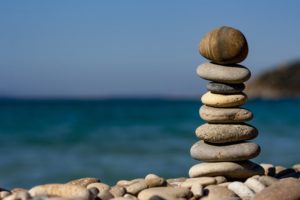How Insomnia Comes And How To Stop It?
A lot of us are familiar with the term insomnia. If explained in layman’s terms, insomnia simply means unable to sleep. But if we dive deep into the scientific studies and researches, insomnia is not just the lack of having the ability to sleep. It is something much deeper than that.
Although sleep is a very important and normal aspect of our lives, we generally don’t think much about how we fall asleep or the mechanism behind it.
Just try and answer this question – how do you fall asleep?
Most of you would say we get tired and fall asleep as soon as we hit the sack or some of you would say that we relax our mind and body and slowly drift off.
Well, these answers are partially right.
But many other factors are corresponding to sleep and I have mentioned them further in this article for you to understand better.
Understanding Aging and Sleep

The most common cause of insomnia is aging.
Not many of you know this, but there are various stages of sleep. The stages are termed as follows:
- Stage 1 or N1 or transient phase
- Stage 2 or N2
- Stage 3 or N3
- The REM sleep stage
A lot of you might have heard about the REM sleep stage or the REM cycle.
The REM stage of the sleep cycle is known to be the most intense stage. This is the stage where you start dreaming and your brain becomes active with a quick pace of heartbeats and breathing patterns.
Now what happens between these stages at night is that when someone starts to drift into sleep, they start at the transient phase of the sleep cycle and then gradually progresses to stage 2 and stage 3. When we go into stage 3, we have a sort of lingering effect in this stage for some time before we fall into the intense REM Sleep.
But we soon come out of the REM sleep and start back at stage 1 and the cycle continues back until the duration of the REM sleep increases and soon enough, we fall completely into the REM sleep stage and don’t come back up to stage 1.
Now if we look at this sleep cycle, it is observed that stage 3 is somewhat longer at the beginning of the night whereas the REM sleep gets longer towards the end of the night.
Both these stages are known to be the most crucial and restful stages of the sleep cycle. Stage 3 is known to be restful physically and during which the growth hormones are produced while the REM sleep stage is known to be more mentally restorative.
As we age, the stage 3 and REM sleep stage decreases, and stage 2, which is more of a bland sleep – increases. These changes can be seen in the people starting their 40’s or 50’s.
And as people age, their stage 3 and REM sleep stage decreases, which further leads to sleeplessness and poor-quality sleep termed as insomnia.
Other Causes of Insomnia

As mentioned earlier, insomnia is nothing but a decrease in stage 3 and REM sleep stage.
Transient insomnia, on the other hand, is when the person fails to achieve even the first stage of their sleep cycle.
And this could not be just due to aging. There are many other physical and psychological factors that could lead to a decrease in the quality or sleep cycle.
Sometimes, certain medical conditions could cause chronic insomnia in many people.
A few other causes of insomnia that are not age-related are:
- A shift in the circadian rhythm due to job changes, jet lags, extreme temperatures, or excessive noise.
- Psychological causes – Bipolar disorder, depression, excessive stress, anxiety, psychotic disorders, etc.
- Underlying Medical Conditions – Congestive heart failure, chronic fatigue syndrome or chronic pain, Acid Reflux, or Chronic Obstructive Pulmonary diseases.
- Hormonal Imbalance – due to shifts in the estrogen hormone levels during menstruation, women tend to lose their sleep.
- Miscellaneous – sleeping next to a snoring partner, genetic condition, etc.
How to Know If You Are Suffering from Insomnia?
The classic signs and symptoms associated with insomnia are:
- Headaches
- Trouble falling asleep at night
- Waking during the night
- Waking earlier than needed
- Feeling tired even after a night’s sleep
- Feeling sleepy throughout the day
- Day time fatigue
- Irritability, depression, anxiety
- Lack of focus leading to the constant making of mistakes
Insomnia itself is seen as a symptom of some underlying medical condition.
How to Deal with Insomnia?
Having insomnia can be annoying and can cost you a lot more than you think. Dealing with insomnia is not that hard if you keep in mind these few key steps that I think can help you out.
1) Keep Your Sleep Schedule Constant

Try waking up and going to bed at the same time each day. This would help your body set its natural alarm and would prevent you from waking early or falling asleep early.
2) Eliminate Caffeine and Alcohol

Caffeine and alcohol are said to have long-lasting effects on the body that lasts at least 24 hours.
Caffeine and alcohol are natural stimulants that increase the body’s alertness and toy with the nervous system. This could hamper the circadian rhythm of the body and could cause difficulty in falling asleep.
3) Using Blue Light Blocking Glasses
Blue light is emitted by the electronics we use and harms our eyesight. This blue light is also responsible for insomnia as it blocks the production of melatonin in the body, a hormone responsible for inducing sleep.
This makes you less drowsy and takes longer for the body to prepare for sleep.
4) Limit Activities in Bed

Make sure you use your bed only for sleeping or resting. Eating, studying, using electronics, or doing other things on your bed could increase alertness and could lead to a decrease in sleep.
5) Avoid Eating Just before Bed

Many digestive conditions are caused when we eat a hearty meal and immediately go to bed. Acid reflux and flatulence can cause stomach discomfort which could lead to insomnia.
Make sure you eat your diner at least 32-3 hours before bed.
6) Build A Proper Sleeping Environment

Make sure the room that you sleep in is not too cold or too hot.
Turning off the lights before you sleep is supposedly a good idea and could help you drift into sleep much faster.
7) Relax

The last thing I recommend is to relax as you go to sleep. Do not overthink about your chores for the next day or replay the negative aspects of the day in your head.
Try to relax by taking deep breaths. Breathing helps the body relax. Calm down your mind and avoid stressing over things before you go to sleep.
Lastly, if you feel that your insomnia is starting to cause you even more harm, do not hesitate to visit a doctor. Some many medications and drugs could help relieve you of your condition.
Sleep is very important and should not be ignored at any cost.
For more articles like these, click here.


